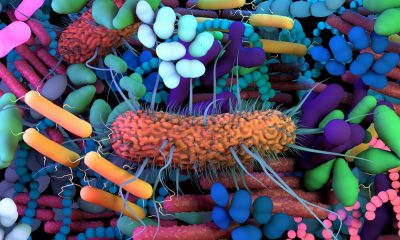Over the last decade, global coffee production nearly doubled, making coffee one of the most popular beverages in modern society. Given its popularity, any health advantages could have a significant impact on public health. According to a recent study, 16 percent of Americans are aware of the benefits of coffee use, while 66 percent limit their coffee consumption.
Coffee’s health effects have long been a contentious issue, with advocates claiming its antioxidant activity and brain-boosting abilities and detractors citing drawbacks including insomnia, indigestion, and an increased heart rate and blood pressure. However, the most recent wave of scientific information has a lot of good news for coffee drinkers and various coffee shop owners.
Below we will discuss the top 10 ways coffee can positively impact your health:
1. Coffee has a lot of antioxidants that are good for you.
According to studies, coffee has more antioxidant activity than green tea and chocolate, two antioxidant powerhouses. Approximately 1,000 antioxidants have been found in unprocessed coffee beans, with hundreds more developing throughout the roasting process. Coffee has been identified as a key — and in some cases, the only — dietary source of antioxidants for many research participants. Antioxidants fight inflammation, which is at the root of many chronic diseases like arthritis, atherosclerosis, and cancer. They also neutralize free radicals, which are produced normally as part of everyday metabolic functions but can lead to oxidative stress and chronic disease.
2. The impact of caffeine on memory loss.
There has been some promising study on the use of caffeine in older persons to overcome the natural memory impairments that come with age. Caffeine, for example, was found to minimize the afternoon memory deterioration seen by “morning people,” or older adults who function better in the morning than in the afternoon.
3. Coffee may aid in the prevention of cognitive deterioration.
Regular coffee drinking may help prevent cognitive decline linked with Alzheimer’s disease and other types of dementia, in addition to delivering a transient boost in brain activity and memory. Researchers in Finland discovered that drinking three to five cups of coffee per day in midlife was linked to a 65 percent lower incidence of Alzheimer’s disease and dementia later in life. The researchers also looked at the influence of tea consumption on cognitive impairment, but found no link.
4. Coffee may aid in the prevention of some cancers.
According to research from Harvard School of Public Health, women who drank four or more cups of coffee per day had a 25% lower risk of endometrial cancer than women who drank less than one cup per day. Regular coffee use has also been linked to lower incidence of liver, colon, breast, and rectal cancers, according to studies.
5. Caffeine is advantageous for the heart.
A significant Dutch study found that moderate coffee drinkers (those who drank two to four cups per day) had a 20% lower risk of heart disease than heavy or light coffee drinkers, as well as nondrinkers, after analyzing data from more than 37,000 people over a 13-year period. There’s some evidence that coffee can help your heart by preventing inflammation-induced artery damage.
6. Coffee has been shown to reduce the risk of type 2 diabetes.
A growing amount of evidence implies a link between coffee consumption and a lower risk of diabetes. According to one study, each daily cup of coffee reduced the chance of getting diabetes by 7%. Heavy coffee consumers (those who drink four or more cups per day) have a 50% lower risk of diabetes than light coffee drinkers or nondrinkers, according to previous epidemiological studies. Coffee, according to scientists, may help the body use insulin and protect insulin-producing cells, allowing for appropriate blood sugar regulation; reducing tissue damage; and combating inflammation, a known risk factor for type 2 diabetes.
7. Coffee improves liver function.
Coffee drinking has been related to a lower incidence of cirrhosis, particularly alcoholic cirrhosis, in addition to lowering the risk of liver cancer. A study published in the Archives of Internal Medicine found an inverse relationship between increasing coffee drinking and a 20% reduction in the incidence of cirrhosis for each cup eaten. Researchers discovered an unfavorable connection between coffee consumption and liver enzyme levels in the blood. Inflammation and injury to the liver are usually indicated by elevated levels of liver enzymes. The more coffee the participants consumed, the lower their enzyme levels became.
8. Gout can be avoided by drinking coffee.
Independent studies of men and women’s coffee consumption habits reveal that drinking coffee on a daily basis lowers the chance of acquiring gout. The Nurses’ Health Study examined the health habits of nearly 90,000 female nurses over a 26-year period and discovered a link between long-term coffee intake and a reduced incidence of gout. The benefit was aligned with both regular and decaf consumption: women who drank more than four cups of regular coffee daily had a 57% lower risk of gout; women who drank one to three cups daily had a 22% lower risk of gout; and women who drank one cup of decaf per day had a 23% lower risk of gout when compared to women who didn’t drink coffee at all.
9. Coffee is an antidepressant.
Coffee consumption has been related to lower incidence of depression in both men and women in numerous studies. The findings from multiple research revealed an inverse association between coffee consumption and depression: heavy coffee consumers appeared to have the lowest risk of depression (up to 20%). Researchers aren’t clear how coffee prevents sadness, although it is known that caffeine activates mood-controlling neurotransmitters like dopamine and serotonin.
10. Coffee can help you get more out of your workout.
We’ve been taught that caffeine dehydrates us, which is one of the main reasons why fitness professionals advise against drinking coffee before and after a workout. Recent study reveals, however, that modest caffeine usage — up to 500 mg per day, or approximately five cups per day — does not dehydrate exercisers to the point that it interferes with their training. Coffee also aids in the fight against exhaustion, allowing you to exercise for longer periods of time.
Final Thought
Even though many people are skeptical about coffee’s benefits, the existing research suggests that there are likely more benefits than risks, especially when used in moderation.
















